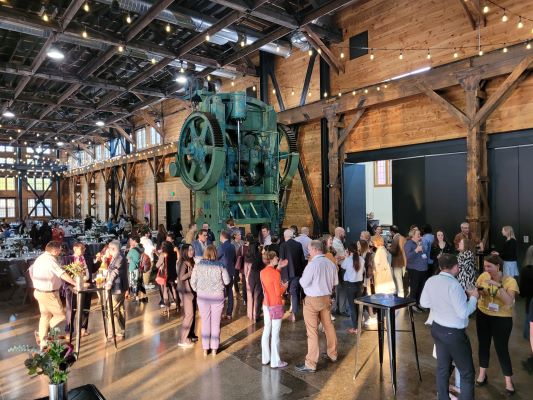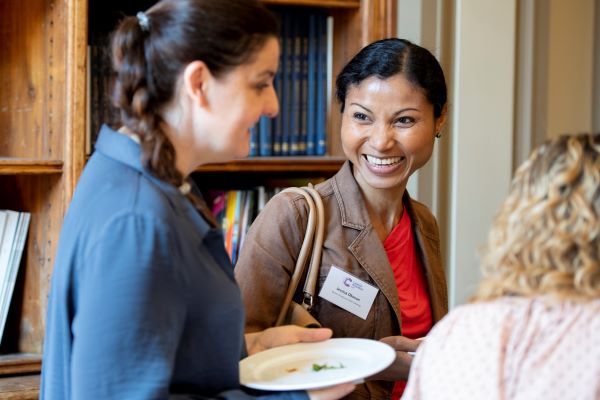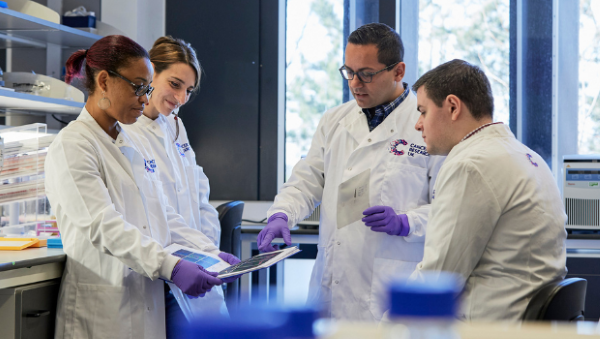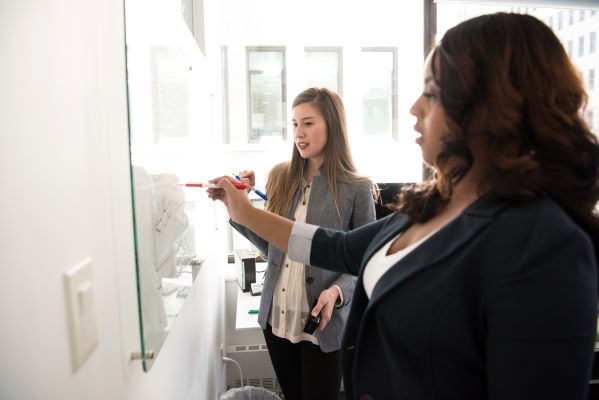EARLY DETECTION AND DIAGNOSIS NEWSLETTER Hi Voornaam,
Welcome to your first early detection and diagnosis research newsletter for 2023.
As we begin the new year, I’d like to take this opportunity to thank you for all your hard work helping us drive forward world-class early detection and diagnosis research, and ultimately improving patient outcomes. We couldn’t be doing this without the incredible research being done by our community in labs, hospitals, and offices all around the UK.
Here at Cancer Research UK, we’re kicking off 2023 with an exciting opportunity – we’re on the lookout for a visionary leader to shape the development of a proposal for a new data-driven initiative for earlier detection and diagnosis of cancer. If this sounds like you or someone you know, please check the details below.
Preparations are also now in full swing for our 2023 Early Detection Conference, which will be held in London this October. Keep your eyes peeled for news of our speakers and session topics.
Lastly, join me in congratulating our Early Detection and Diagnosis Research Committee Member, Professor Serena Nik-Zainal, who received the Francis Crick Medal 2022 and delivered an excellent Francis Crick Prize Lecture at the Royal Society.
Kind regards,
David Crosby
Head of Prevention and Early Detection Research
Cancer Research UK |
|
|---|
|
|---|
|
|
 CALL FOR DIRECTOR, CANCER DATA DRIVEN DETECTION (CD3) Cancer Research UK is seeking a new Director to lead and shape the development of a proposal for a landmark multidisciplinary, multi-institutional research consortium, Cancer Data Driven Detection (CD3).
CD3 will use data science to revolutionise our understanding of cancer risk and to allow early detection and intervention to improve patient outcomes. We’re leading the development of the project with support from Health Data Research UK, The Alan Turing Institute and the Economic and Social Research Council’s Administrative Data Research UK programme.
If you’re a prominent non-clinical or clinical scientist with an international reputation for excellence, we’d love to hear from you – apply by 24 February. |
|
|---|
|  THE EARLY DETECTION OF CANCER CONFERENCE 2023 – SAVE THE DATE If you work in or are interested in cancer early detection, don't miss our 2023 Early Detection of Cancer Conference, which will be held on 10–12 October in London, UK.
This must-attend event will feature world-leading researchers and early detection leaders from across the globe – join us to learn about the latest developments in the field, network with peers and experts, and perhaps even start a new collaboration.
Fiona Walter (Queen Mary, University of London), Ramasamy Paulmurugan (Canary Center at Stanford), and Julia Maxson (OHSU Knight Cancer Institute), this year’s Scientific Programme Committee, are working on our exciting agenda. |
|
|---|
|
|---|
|
|
SUPPORT FOR BEHAVIOURAL RESEARCH GRANT APPLICATIONS Are you a behavioural scientist considering applying to our Prevention and Population Research or Early Detection and Diagnosis Research Committee in June?
After our webinar in November (watch the recording), we’re here to support you with a further initiative.
On 25 April, the National Cancer Research Institute (NCRI) will be running a bespoke, one-off behavioural research proposal guidance meeting, where a panel of experts will be on hand to review your study proposal. We strongly advise you to use this unique opportunity to gain feedback on your work, so you can boost your chances of success when submitting your application to us.
The deadline to submit your research proposal is 27 February. |
|
|---|
|
|---|
|
|
HEAR FROM SERENA NIK-ZAINAL, FRANCIS CRICK MEDAL 2022 WINNER Many congratulations to our Early Detection and Diagnosis Research Committee member, Professor Serena Nik-Zainal (University of Cambridge), who took home the Francis Crick Medal 2022.
Serena has contributed significantly to understanding the aetiology of cancers with her analyses of mutation signatures in cancer genomes, which are now being applied to cancer therapy.
During her Francis Crick Prize Lecture, held at the Royal Society on 12 January, Serena spoke about how like street art, DNA mutations in cancer can also be recognisable – and they could reveal underlying biological abnormalities, unique to each person’s cancer, with potential for application in precision medicine. |
|
|---|
|
|---|
|
|
 EMPOWERING WOMEN IN CANCER RESEARCH To celebrate International Women’s Day, we’re bringing together women from across our postdoctoral network to connect, collaborate and tackle the barriers to progression for women in cancer research.
Postdoc futures: empowering women in cancer research is a free half day event on 7 March at the Royal Society in London open to all Cancer Research UK-funded women postdocs.
Join inspiring talks and pick up practical career tips from successful women in academia and business. You can also take part in roundtable discussions on career progression and experiences with peers. |
|
|---|
|  CONNECT AND COLLABORATE WITH RESEARCHERS ACROSS THE UK Are you looking to exchange ideas, engage in lively discussions and explore opportunities with other research groups?
Join the Open Lab Initiative to connect with your research community and develop your project – Open Lab now has over 300 members and has matched more than 100 research groups. |
|
|---|
|
|---|
|
|
 NEW POLICY TO EVOLVE CONTINUING PROFESSIONAL DEVELOPMENT We’re formalising our commitments and expectations in our new policy for continuing professional development to further support the growth and progression of our researchers.
All host institutions are now expected to actively promote and fund career-based skills training opportunities, making sure these are embedded into research plans from the application stage. We also expect Cancer Research UK-funded researchers and students to dedicate 10 days each year (pro-rata if part-time) to continuing professional development. |
|
|---|
|  THE MADNESS OF THE SHORT METHOD SECTION In the latest release of our research integrity blog series, Dr Andrew Porter (Research Integrity and Training Adviser at the Cancer Research UK Manchester Institute) reveals what we can learn from the Great British Bake Off about the communication of research methods in publications.
Andrew explores why adding more detail to the method section is considered a 'taboo', the dangers of publishing with a short method, and he provides takeaway tips on how to reverse the trend. |
|
|---|
|
|---|
|
|
| Been forwarded this email? Subscribe to our newsletter to stay up to date. |
|---|
| |
|---|
|
|
|